Today we will look at some high stakes hands.
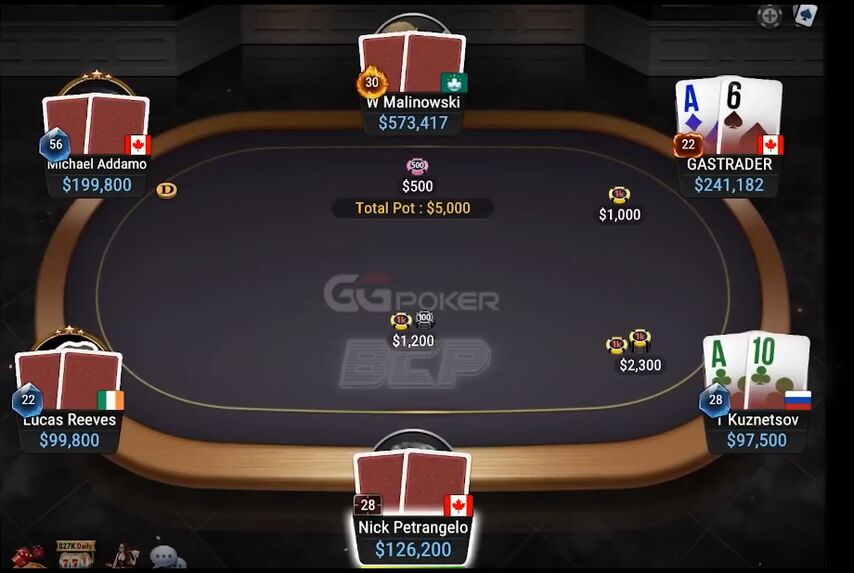
ATs – a solid raise from first position, ace-ten can be opened even when are offsuit. Nick Petrangelo calls. In a game without ante, 3-bet or fold is played more often, but with ante there are more calls. Until Bill Perkins loses everything, he plays.
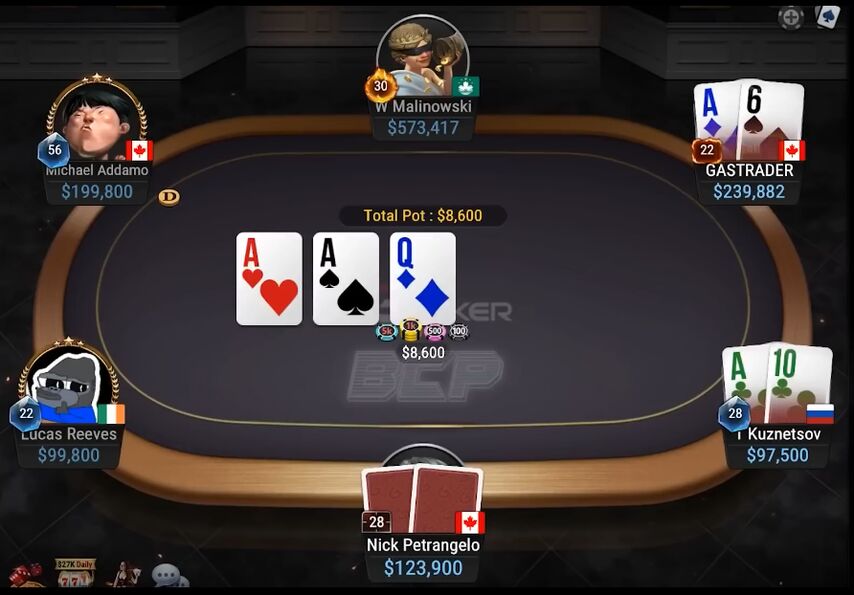
Bill finds himself in a difficult position. On the one hand, he has the best possible card, an ace. On the other hand, the second card is very weak and easily dominated.
He checks and Trueteller bets $2,838. This is not the worst flop to cbet in a multiway pot. He's sure that Nick doesn't have , a although possible, but unlikely, when two aces are on the board and one more is in our hand.
Petrangelo folds and Perkins calls.
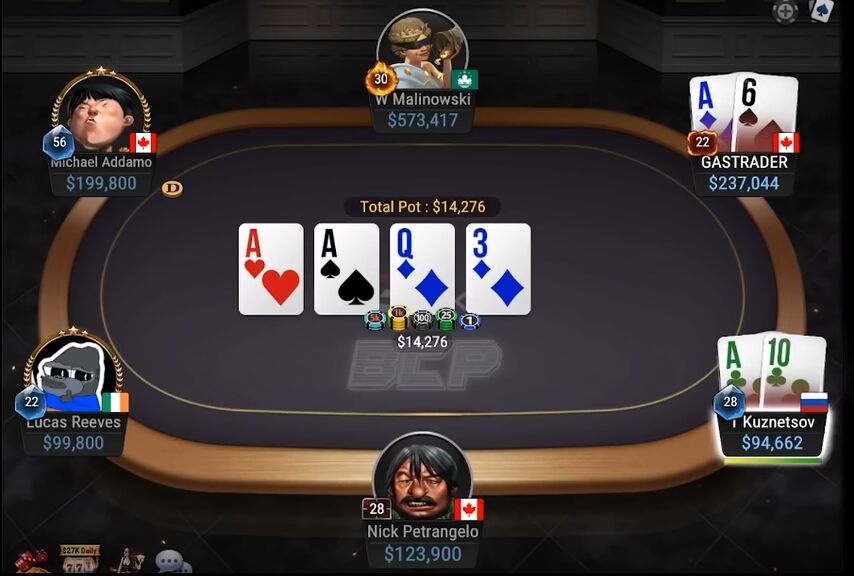
Trueteller will bomb on this turn. He has very strong trips, it is unlikely that he is behind. If Perkins has an ace, Trueteller will want to take the stack from him.
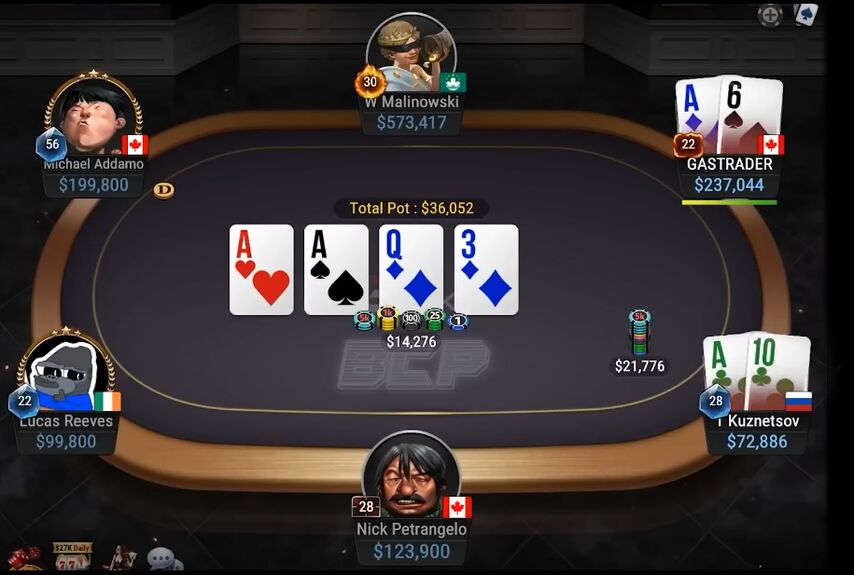
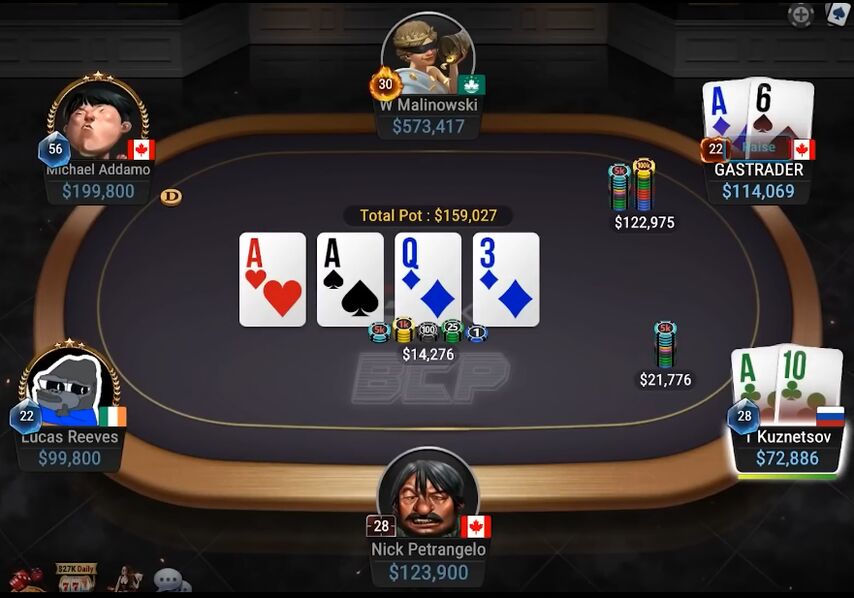
Monstrous mistake! And, most importantly, this all-in does not make any sense at all. If Trueteller is bluffing, why stop him? If he has trips, he won't fold.
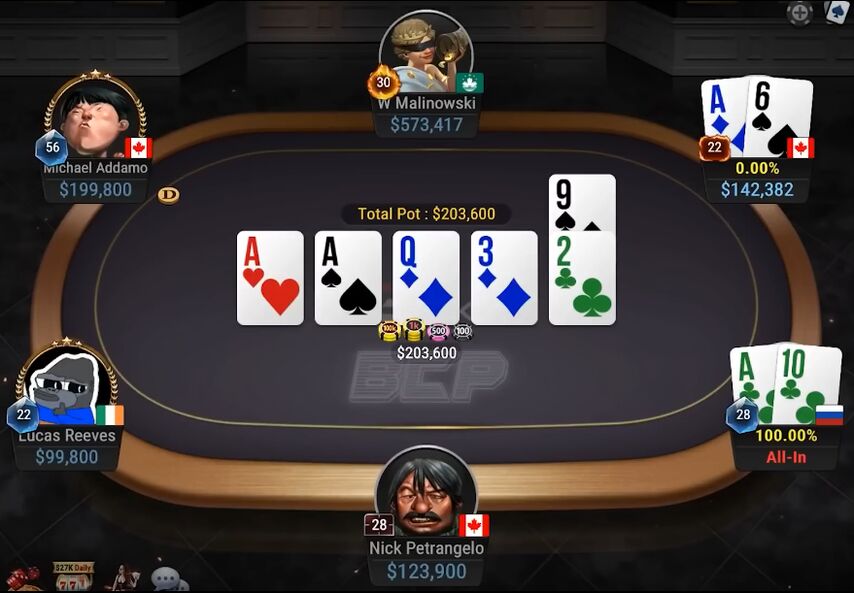
In my opinion, Bill Perkins is basically a good poker player right now, but he didn't shine in this hand. All the players at this table make mistakes from time to time, but they rarely make such a big mistake.
In my experience, there was one very unpleasant hand with Bill Perkins. About five months ago, I was sitting on an empty $100/$200 table when a player with the username "Dan Bilzerian" and Bilzerian's profile picture appears to my left. Probably, I think, this is some kind of troll, reg, who decided to play under his name. We start playing heads-up, and a few seconds later, Bill Perkins is seated at the table to my right.
This changes everything, because I know that Bill and Dan are friends and may well come in to play high stakes at the same time. All of a sudden, one of the best lineups I've played in all year is gathering around me – two clear targets and no top regulars!
Perkins posted 200 blinds, $40,000. I posted the same.
The next hand is played approximately five minutes after the start of the session.
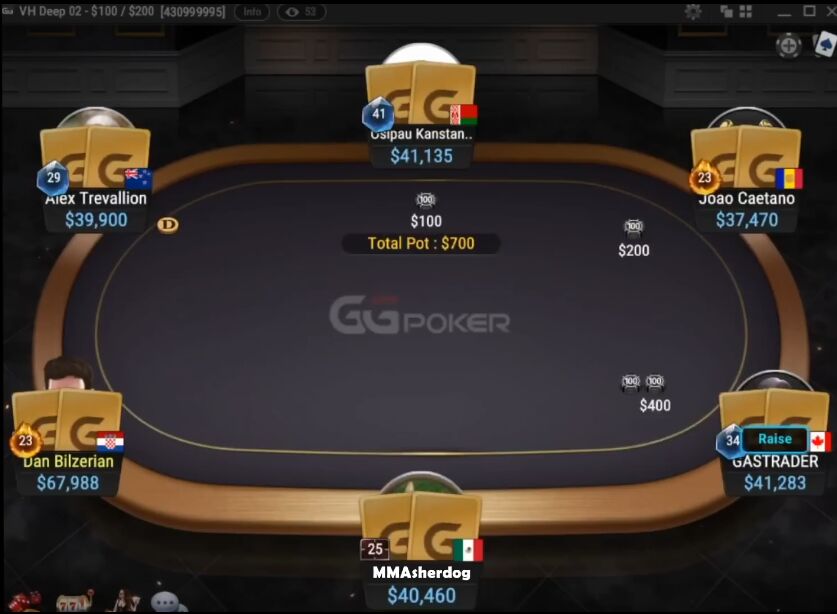
Bill opens with a min-raise in first position. I'm dealt , I 3-bet $1,500. Everyone folds and Bill instantly calls.
The flop comes a queen. Jackpot!
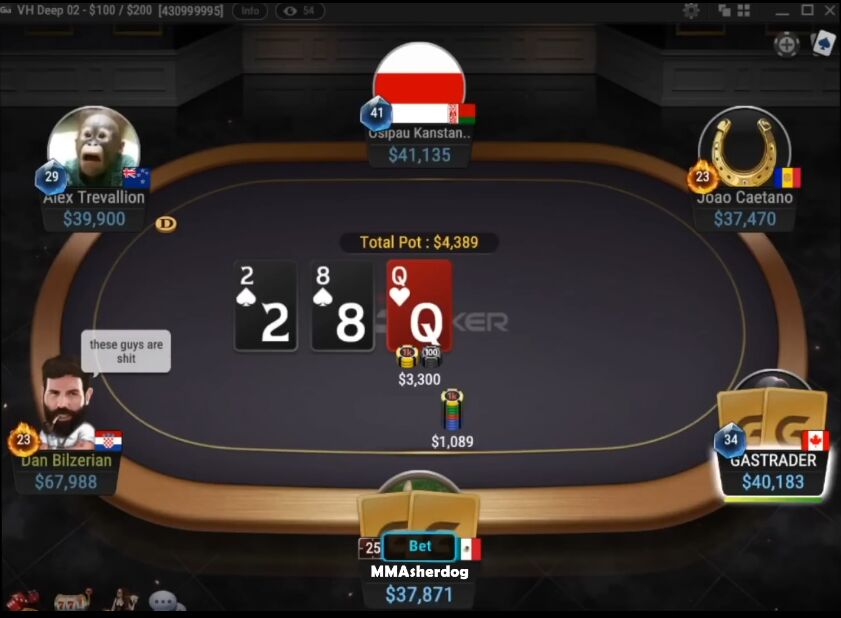
I bet a third of the pot. Bill calls.
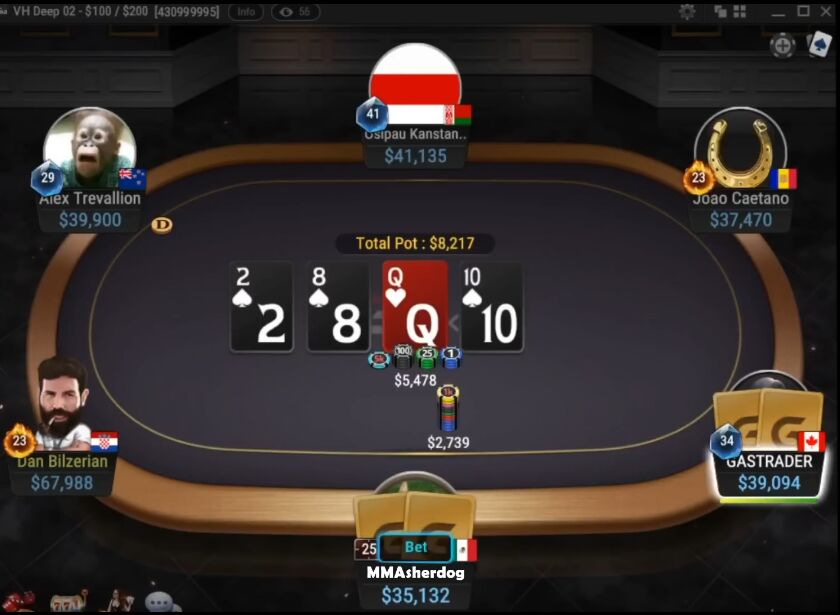
The turn completes the flush. Bill checks, I bet a second half-pot barrel. And Bill... goes all in!
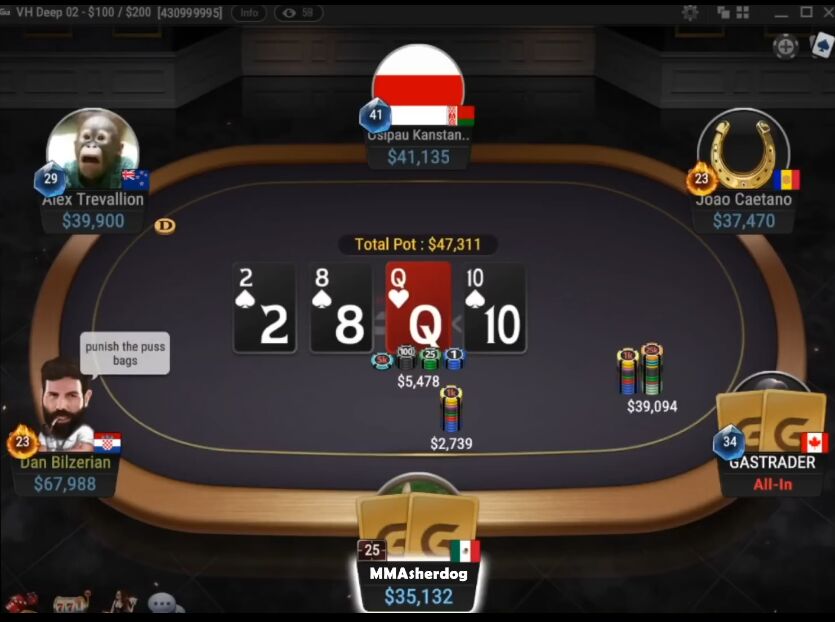
Instant all-in for almost six pots, he thought for less than a second.
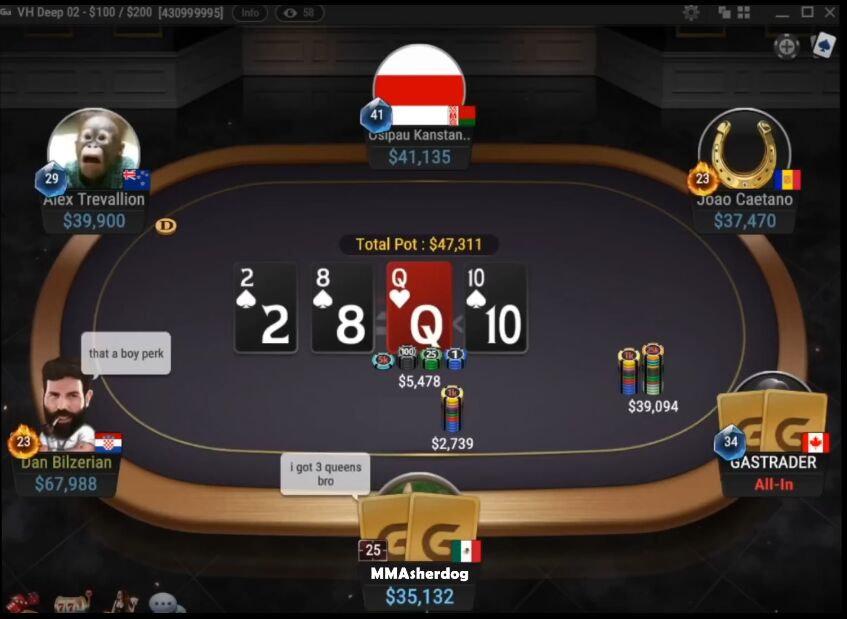
Just prior to this session, I was analyzing Bill Perkins' hands, and whenever he played that line, he had the nuts. Especially at the beginning of the session. He usually starts gambling a little later, when he goes into the red and wants to recoup, but in the beginning he has enough discipline to play like a nit.
I thought for a long time and decided to fold. I did not show my hand – it's a shame to make such folds. And Bill showed KJo offsuit with the king of spades. That's the whole story of how I folded top set against him in 200bb stacks at NL20k.
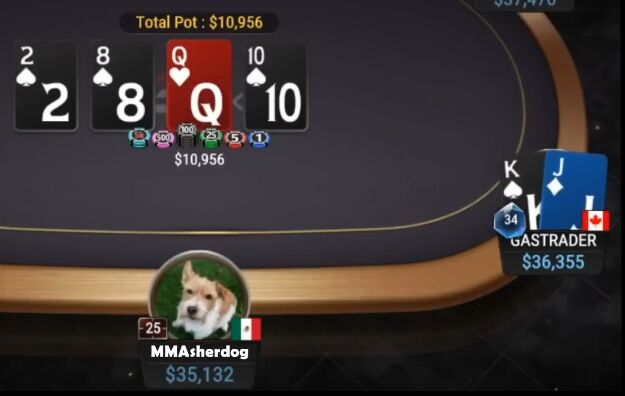
I still think it was a good fold in the long run. However, in a particular hand, Bill outplayed me – well done!
Of course, I'm not always right when I deviate from the GTO lines, but still enough often that such deviations are justified.
Now let's look at two hands played by LinusLLove and BERRI SWEET, the men who are among the strongest heads up no limit hold'em in the history of poker. Let's try to find mistakes or learn something from them.
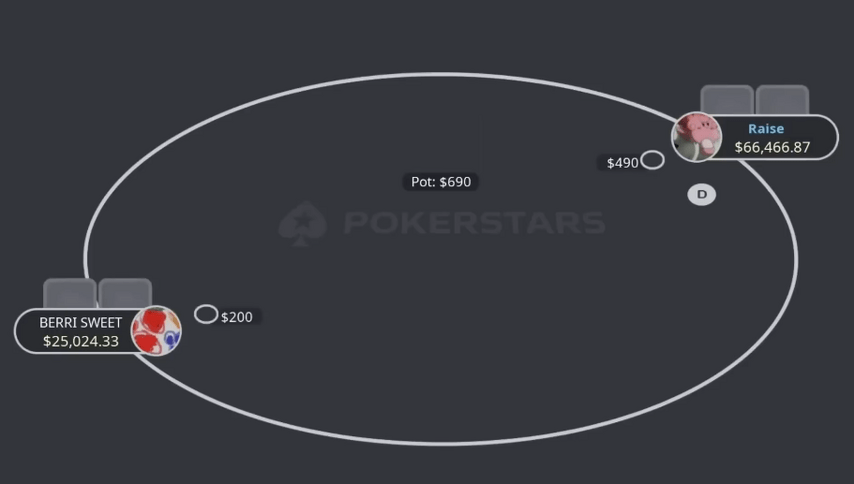
Linus raises to $490. It's more standard here to raise $500, but he's always looking to get a discount. Berry calls. He 3-bets about 20% of hands here, folds a small number of hands from the bottom of his range, and calls most of the time.
Flop ($977):
A good flop for both players – each has sets, straights, two pair, open-ended and strong flush draws.
Berry checks, Linus bets $684. Big bet, which means his range is highly polarized. It won't have hands like or – the combinations he bets for value should be stronger.
Berry check-raises to $2,372. He says, yes, I understand that you have a polar c-bet, so I should check-raise less often than against a c-bet to a third of the pot, but I still have a lot of strong hands. Of course, there are all combinations in his range , including offsuit. 85s is generally a standard combination for Berry. He has and lots of equity. All in all, a good choice, with lots of high equity hands to check-raise.
Linus decides to call. I don't think he should 3-bet much, if at all. Hee doesn't cap his range by calling. He can have there too.
Turn ($11,498):
Ten changes the nuts, and how , and is in the ranges of both players, especially in combination with a heart. With Linus, they are a little more likely than with Berry.
Berry bets $5,777 leaving $16,585 behind. Linus calls.
River ($17,275, effective stack $16,585):
The deuce doesn't change anything. Well, Berry might have, for example, , but the deuce does not add value to his range at showdown, since it only beats , but this is clearly not enough.
Berry goes all-in. He's known for thin draws and I wouldn't be surprised to see him have two pair, but more often it's a set or a straight.
Linus calls.
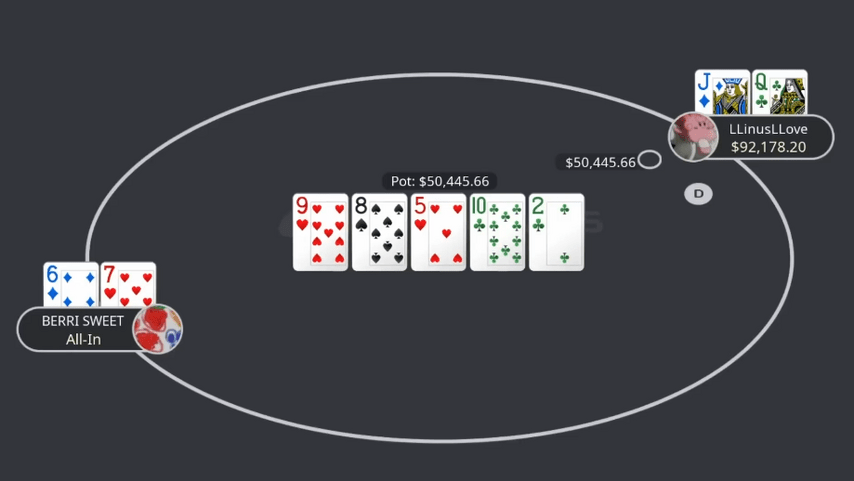
Wow! Linus' bet call with a gutshot on the flop is unlikely to print money, especially since he doesn't even have a single heart in his hand, but he manages to hit the perfect turn. Then he has the nuts in position on a less dynamic board. When in such cases they continue to bet, the main thing is not to interfere. Most of the time it's best to just call. You should only raise if you think your hand is in desperate need of protection.
Berry fast played the flopped nuts, so there's nothing to scold him for. He knows he's behind and , knows Linus has these hands, but heads-up against an aggressive player, you can't wait strictly for the nuts to go all-in. Berry was more than happy to bet all-in on the river, and if the stacks were deeper and he got raised 3-4x, he probably would have called.
In my opinion, both played this hand well, I like everything.
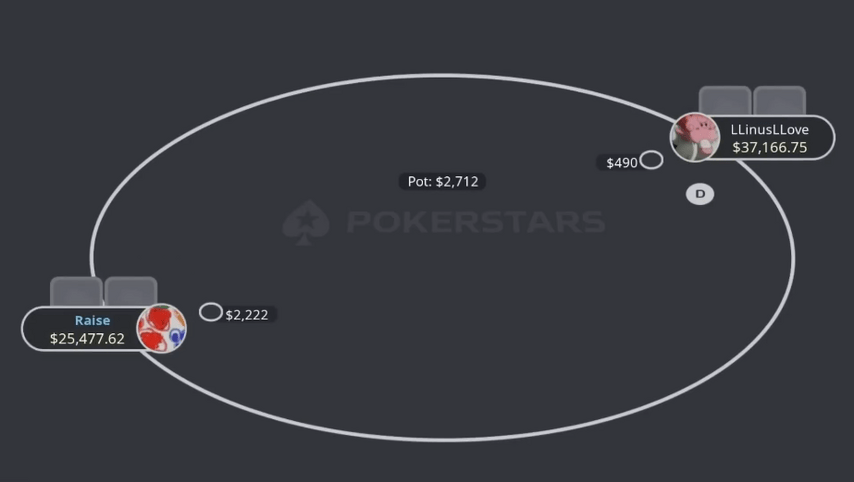
Linus raises again to $490 and Berry 3-bets with a 4.2x size for about 11bb. Linus calls.
Flop ($4,441):
Not the scariest texture for Berry, but not perfect either. His hands will rarely be strengthened by a deuce and a five. He hits a nine sometimes, but his best cards on the flop are an ace, a king, and a queen. Linus flop improves a little more. He will always call a 3-bet with , but Berry hardly 3-bets often with .
The flop betting starts with Berry betting $4,444, the full pot minus the rake. He claims that he has a strong hand that he wants to play quickly. For example, two jacks. Two jacks on this board are almost always the nuts and would gladly bet all $25,000 into the center of the table until overcards, hearts, another nine, six, or sevens came on the table... There are too many unpleasant cards, so I would like to decide the fate of the hand as much as possible while we are likely to be ahead.
Linus responds with an all-in. He may do it for protection. If Berry, for example, has , this hand has decent equity, but it certainly doesn't call all-in.
Berry calls...
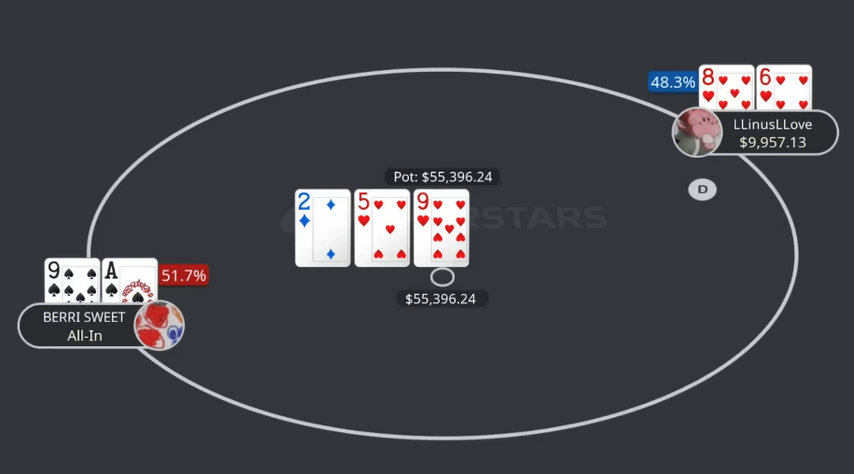
...And loses both runs!
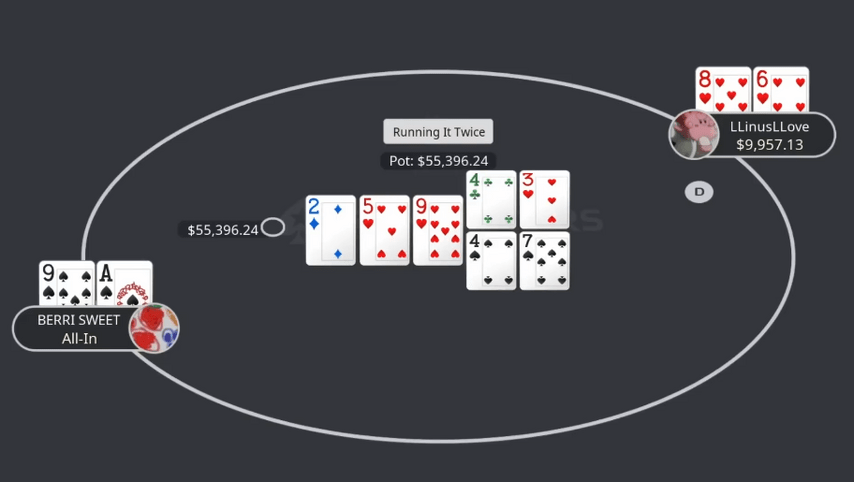
Call by Berry with seems good to me. He probably thinks Linus would 4-bet preflop with TT+, so top pair with top kicker on the flop only loses to sets. With , as with , he would like to get the money in as quickly as possible before the nasty cards come.
Linus sees a gutshot on the flop, which is always live outs, and nine outs for the flush, eight of which are usually live. If Berry folds hands like , it will be a huge success. An all-in is only bad against a big flush draw, and against other hands it has excellent equity. Yes, against it's not great either, but Berry wouldn't be c-betting top set for full pot.
And in this distribution, both opponents played very well. Amazing, right? And once again the divine power of Linus appeared in all-ins. I know that this year he did not always win in matches against Berry and other HU masters, but throughout his previous career, and especially at the very beginning, he was considered the luckiest one. But no complaints, because Linus is a real hard worker and a great guy.
